Indigenous Governance Database
Māui Hudson
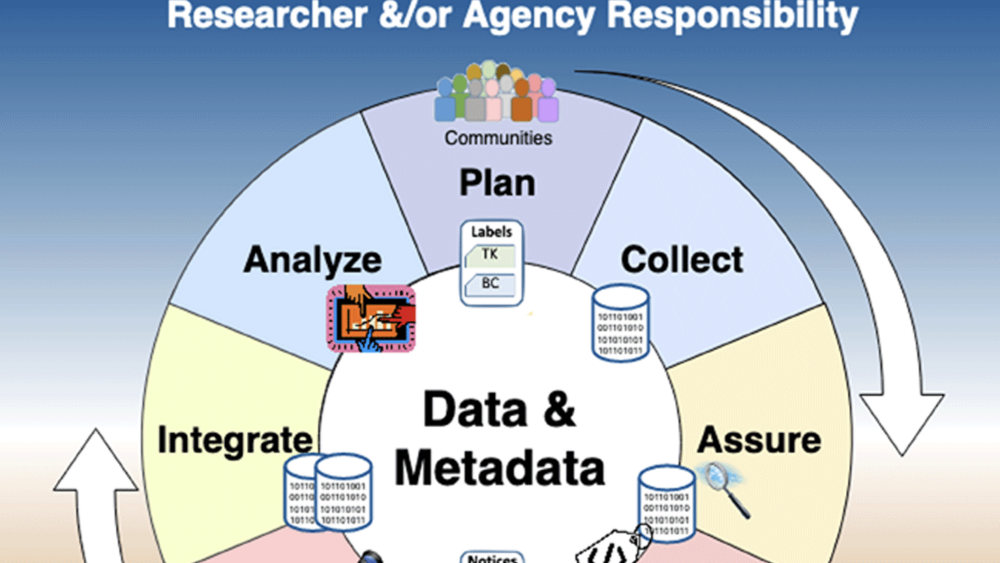
Earth Science Data Repositories: Implementing the CARE Principles
Datasets carry cultural and political context at all parts of the data life cycle. Historically, Earth science data repositories have taken their guidance and policies as a combination of mandates from their funding agencies and the needs of their user communities, typically universities, agencies…
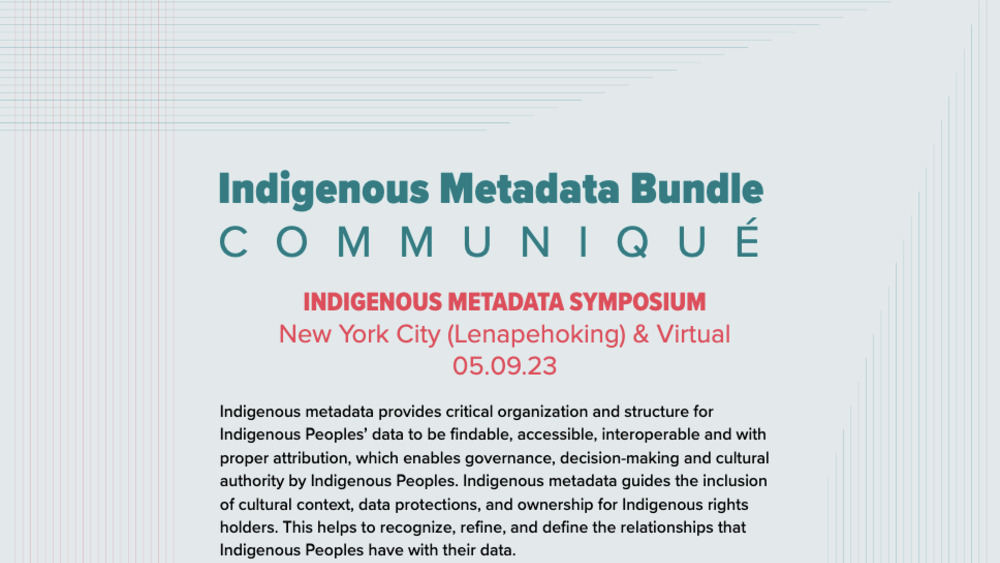
Indigenous Metadata Bundle Communiqué
Indigenous metadata provides critical organization and structure for Indigenous Peoples’ data to be findable, accessible, interoperable and with proper attribution, which enables governance, decision-making and cultural authority by Indigenous Peoples. Indigenous metadata guides the inclusion of…

Indigenous Data Governance and Universities Communiqué
Universities create, use, and hold enormous amounts of Indigenous data. These data range from old historical records to contemporary large datasets, including Open Data2 and the data underpinning emerging Artificial Intelligence (AI) Technologies. Indigenous Peoples’ data include information about…

Indigenous Peoples and research: self-determination in research governance
Indigenous Peoples are reimagining their relationship with research and researchers through greater self-determination and involvement in research governance. The emerging discourse around Indigenous Data Sovereignty has provoked discussions about decolonizing data practices and highlighted the…
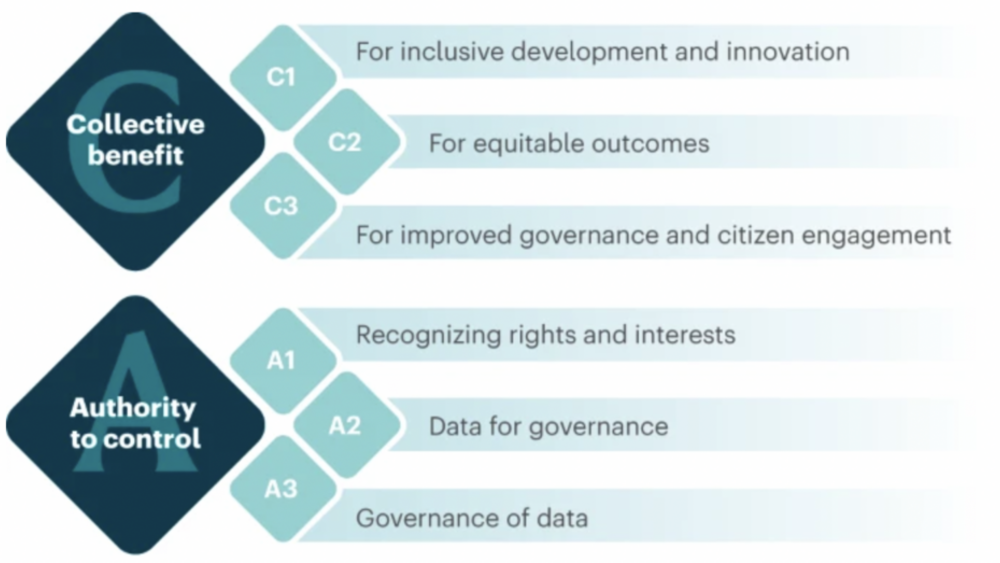
Applying the ‘CARE Principles for Indigenous Data Governance’ to ecology and biodiversity research
Indigenous Peoples are increasingly being sought out for research partnerships that incorporate Indigenous Knowledges into ecology research. In such research partnerships, it is essential that Indigenous data are cared for ethically and responsibly. Here we outline how the ‘CARE Principles for…

Indigenous Peoples' Rights in Data: a contribution toward Indigenous Research Sovereignty
Indigenous Peoples' right to sovereignty forms the foundation for advocacy and actions toward greater Indigenous self-determination and control across a range of domains that impact Indigenous Peoples' communities and cultures. Declarations for sovereignty are rising throughout Indigenous…
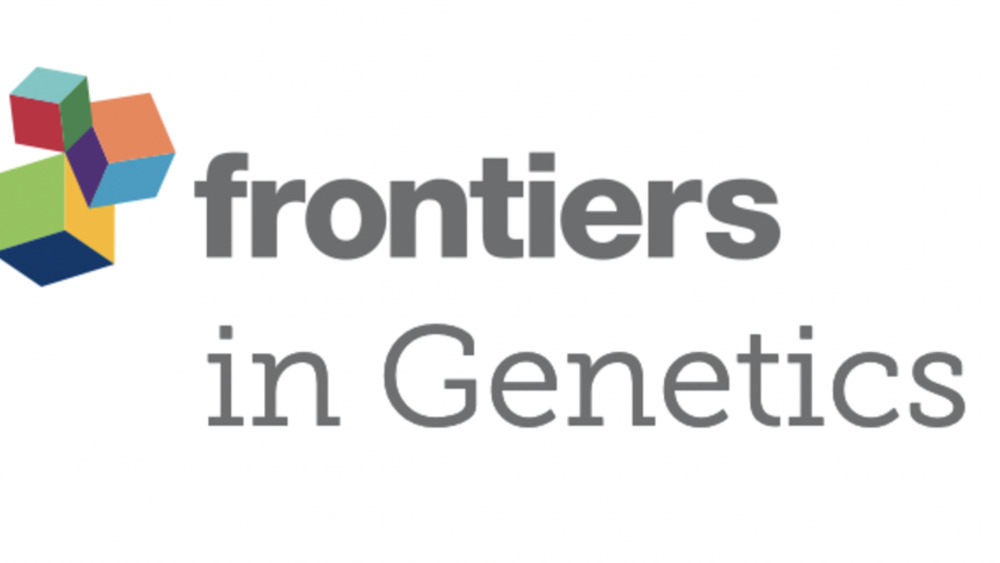
Extending the CARE Principles from tribal research policies to benefit sharing in genomic research
Indigenous Peoples have historically been targets of extractive research that has led to little to no benefit. In genomics, such research not only exposes communities to harms and risks of misuse, but also deprives such communities of potential benefits. Tribes in the US have been exercising their…

Using Indigenous Standards to Implement the CARE Principles: Setting Expectations through Tribal Research Codes
Biomedical data are now organized in large-scale databases allowing researchers worldwide to access and utilize the data for new projects. As new technologies generate even larger amounts of data, data governance and data management are becoming pressing challenges. The FAIR principles (Findable,…

Post COVID-19 Implications for Genetic Diversity and Genomics Research & Innovation: A Call for Governance and Research Capacity
At a time of significant technological change and digitization in the biological sciences, the COVID-19 pandemic has highlighted again the inequities in the research and innovation ecosystem. Based on a consultation with an internationally diverse group of stakeholders from multiple fields and…
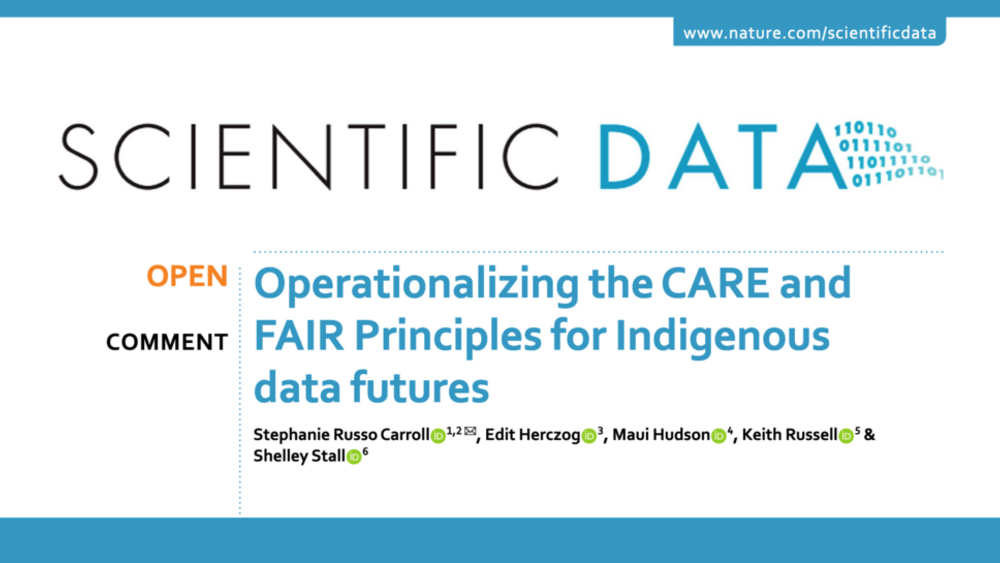
Operationalizing the CARE and FAIR Principles for Indigenous data futures
As big data, open data, and open science advance to increase access to complex and large datasets for innovation, discovery, and decision-making, Indigenous Peoples’ rights to control and access their data within these data environments remain limited. Operationalizing the FAIR Principles for…
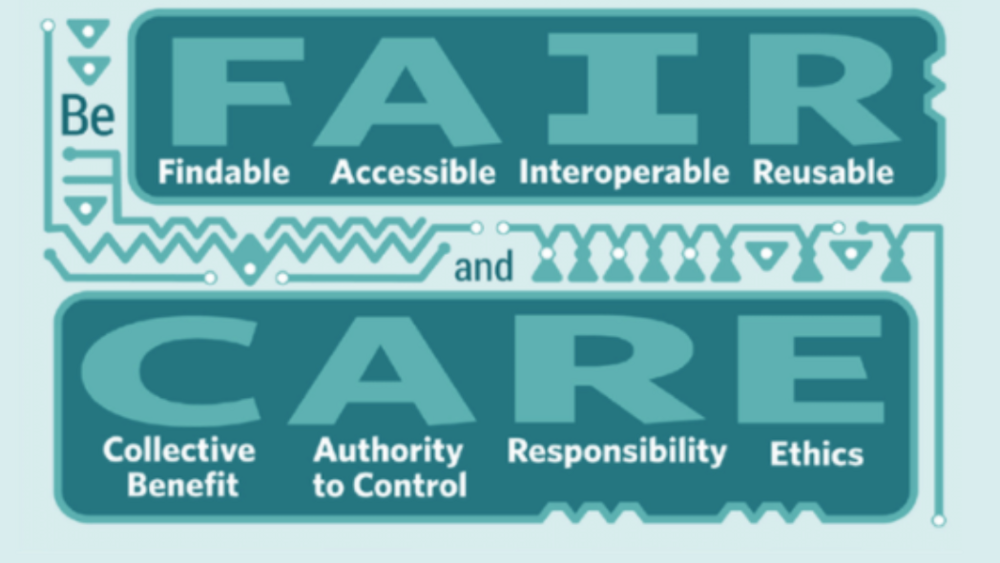
Working with the CARE Principles: operationalising Indigenous data governance
Shifting the focus of data governance from consultation to values-based relationships to promote equitable Indigenous participation in data processes. Indigenous data sovereignty is becoming an increasingly relevant topic, as limited opportunities for benefit sharing have focused attention on the…
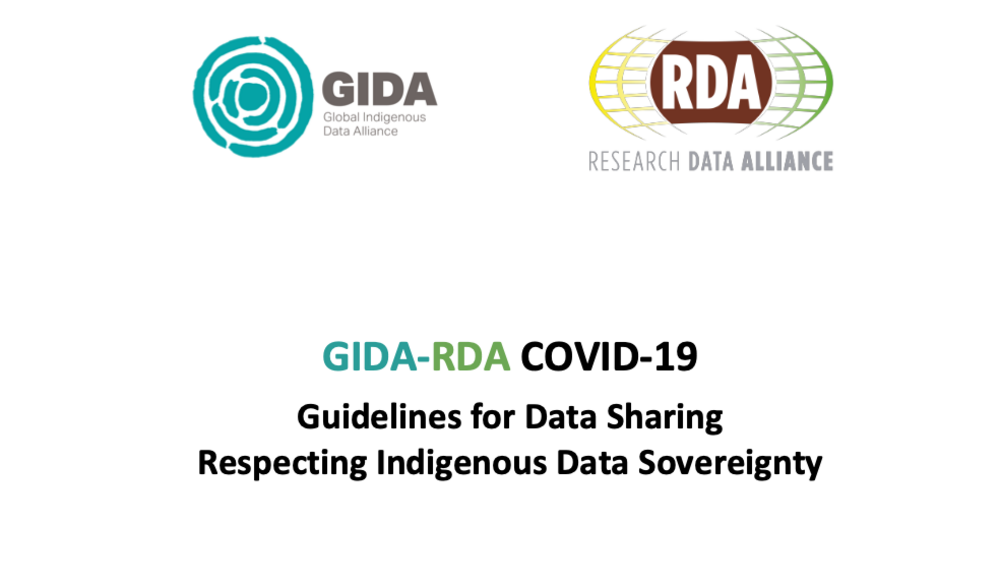
GIDA-RDA COVID-19 Guidelines for Data Sharing Respecting Indigenous Data Sovereignty
Indigenous Peoples around the globe have diverse narratives of resilience and adaptability; however, they are also acutely impacted by the negative social, economic, environmental and health outcomes of COVID-19 (UN Special Rapporteur on the rights of Indigenous Peoples, 2020). As such, it is vital…
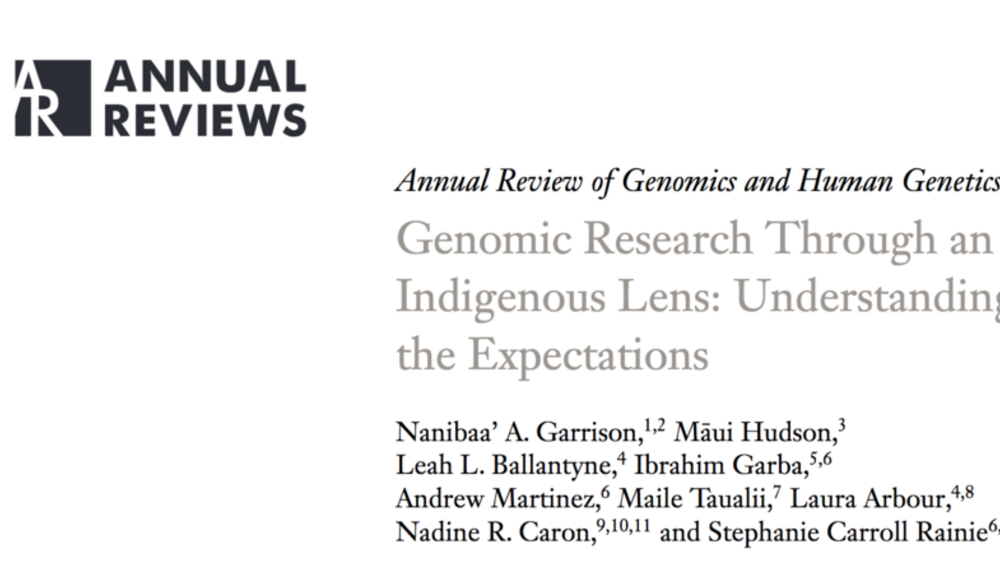
Genomic Research Through an Indigenous Lens: Understanding the Expectations
Indigenous scholars are leading initiatives to improve access to genetic and genomic research and health care based on their unique cultural contexts and within sovereign-based governance models created and accepted by their peoples. In the past, Indigenous peoples’ engagement with genomic research…
